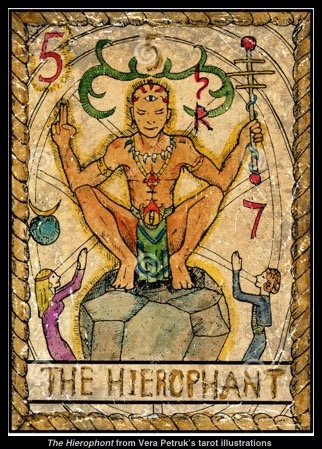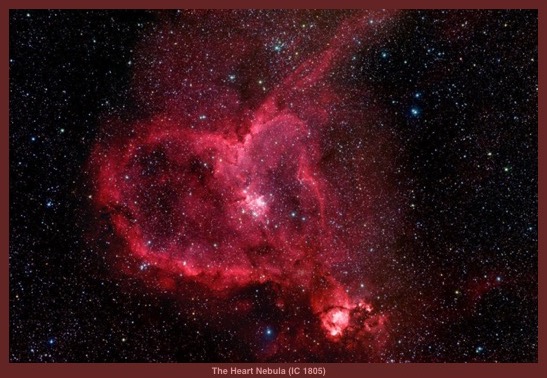This is a very old story, written when I was much, much younger. It is fiction, but it’s also true.
The Horse My Father Rode
©PJ Thompson
“Tell me that story about the horse, Daddy.”
We cuddled in the big green easy chair with the nap of the corduroy on the arms all worn down—me on my father’s lap, nestled in the crook of his arm.
“The story about the horse, huh?” He said it long and drawn out, as if he might not tell it. His eyes sneaked sideways to watch my expression.
“Please, Daddy. I like that story.”
He breathed in like a man about to dive into deep water. “She was a white horse . . . “Â
The story always began that way, and I squirmed around to get comfortable, breathing in the Old Spice of him, basking in his warmth.Â
His voice pitched low and confidential. “. . . the whitest horse I’d ever seen or seen since. That horse gleamed like a pearl—small and perfect and shining white, like the moon had come down to earth for a time. So I took to calling her Pearl, and she always came when I called, ‘Pearl, Pearl.’ She fairly danced on her hooves when she moved and had the prettiest, longest tail you’ve ever seen, and she’d switch, switch, switch it back and forth when she got prancy, which was nearly all the time . . .”
My father’s voice conjured her, that horse named Pearl, a beacon gleaming in the night, guiding us up the path of the story. I smelled the oaty fragrance of her breath, felt the velvet brush of her muzzle as she took a carrot from us, adjusted to the rhythm of her as we rode through the hills, running so fast we left the ground and traversed the night sky. The air was cooler up there, the ground far below—but black, so you couldn’t really get scared because you couldn’t see it. Besides, in my father’s arms, riding on Pearl, I was safe.
Eventually, my father’s voice changed as the rest of the story furled out and a chill set in. We came back to earth, back down from the hills. The world of the worn corduroy chair closed in around us.Â
“Pearl didn’t belong to me,” he said. “She was Old Man Sharkey’s. I used to groom her for him—out of love, you understand, not for pay. I’d groom her, clean her stall, feed her, and for all that, Mr. Sharkey’d let me ride her.
“He’d get mad because I took her out so long and in the dark, but he knew I took real good care of her. All for free, remember. He didn’t want to queer that deal, I can tell you. One day I asked Sharkey if I could buy Pearl, and he laughed because he knew I was only fifteen and didn’t have money. But I said serious and grown-up, ‘Mr. Sharkey, I’ll work all summer long on your ranch for free—any old thing you want—and I’ve also got twenty dollars my mama gave me the day she left. You can have that, too, if you let me have Pearl.’
“Sharkey didn’t know what to say to that. He thought it over a couple of days, then Mrs. Sharkey, who’d taken a liking to me, started up on him.
“‘Henry,’ she said, ‘give that boy an answer. He made you a fair offer.’
“So, Sharkey agreed that if I worked all summer for free, plus gave him the twenty dollars, I could have Pearl.”
“Were you happy, Daddy?”
I always asked that, and he always said, “Lena, I don’t think happy is a big enough word for what I felt. I worked real hard that summer because Old Man Sharkey wanted his money’s worth, but I didn’t care. I was that happy. At the end of summer when he handed me Pearl’s lead rope and said, ‘You’ve earned her, boy,’ I thought my heart would burst.”
He looked that happy all over again, telling me about riding that filly, flying over the Black Hills of South Dakota.
He wouldn’t want to tell the rest of the story, and though I knew the story by heart and didn’t really want to hear it, I’d ask, “What happened next, Daddy?” Because the story wasn’t complete without what happened next.
My father sometimes cleared his throat and looked out the window, or at the faded gold fleur-de-lis wallpaper, or the ceiling with its fine network of cracks spreading like a river delta. He’d look back at me with sad gray eyes and smile. “You don’t really want to hear.”
“Yes, Daddy, I do.”
He’d nod, but wouldn’t start right away. His eyes went unfocused, away from the room, away from me, before he’d start talking. “About a year later I had to go to Sioux Falls to stay with Gramma two weeks because she wasn’t feeling too well. Dad needed my two older brothers, Sam and Raymond, to help with the harvest, so they stayed back. When I got home, Pearl was gone. My oldest brother, Sam, had sold her to a traveling rodeo show man who’d seen her and offered a damned fine price.”
“But she was your horse.”
“I know it, but Sam figured anything that was mine belonged to him. I didn’t have a bill of sale to prove he had no right to her, and my father said, ‘You should of asked before you bought her. We can’t afford to keep a horse too fancy to work.’
“He never would take my part against Sam and Raymond since Mama run off. She’d spoilt me rotten, he said, until I was nearly useless. I needed toughening up.” His hands clenched and unclenched on the arms of the chair, and sometimes, nursing that old wound, I think he forgot me nestling in the crook of his arm.
Maybe I cried the first time I heard this story. I don’t remember. Mostly I’d keep quiet until my father returned to me and asked, “Why do you like that story?”
“I like the part where you and Pearl are flying, and I like the part where Mr. Sharkey gives her to you, and I think it’s real sad the way she was taken from you. If I’d of been there, I’d’ve told your father he was real mean.”
He’d hug me and say, “I bet you would.”
#
All this was before the drinking got bad, and my parents’ fighting intensified, before my father changed from Daddy the God to Andrew Cole, Flawed Human Being. When he hit the whiskey hard, he’d lay into my mother about flirting with other men, accuse her of running around on him, or about to desert him, and of raising me up to be the same damned way. It didn’t matter if neither of us had left the house for a week, he still believed we played him for a fool. If we sought comfort in whispered conferences, he was certain we plotted against him, planning to sneak out some night and leave him flat busted.
We finally did leave—July 21, 1969. I was twelve.
The night before, July 20, the moon had been a thin crescent revealing little on its surface to the naked eye. Yet the whole world knew what happened on a small part of it. We watched grainy black and white television pictures of men walking on Tranquility Base.Â
My father had lost another job two days before and been drinking non-stop. Mother and I sat spellbound in front of the TV like the rest of the world, excited and afraid something would go wrong. I’d set up my portable reel-to-reel tape recorder on a chair near the TV speaker to tape the sounds from the moon, wishing somebody would invent something so you could tape the pictures off the screen. I thought how great the world had become, how a new era had dawned bringing brotherhood and peace, now that we saw our bright globe against the black of night—every transcendent metaphor the TV offered.
My father came in from the back bedroom and stood in the doorway, taking up nearly the entire frame, breathing slow and hard. Mother got quiet and stone-like. I paid him no mind at first, so excited by the moon walk, but I eventually caught the smell of sour whiskey.
“What the hell are you doing?” His voice was even more belligerent than usual.Â
I responded with a challenging tone of my own. “I’m taping the moon walk.”
“Taping the moon walk? I never had any such things as tape recorders when I was your age.”
“They didn’t have tape recorders back then.”
“Didn’t need them, either. We entertained ourselves with stories out of our imaginations, not some crap off the television. Swear to Christ, Doris, you’ve spoilt this girl until she’s almost useless.”
My mother gave him a pleading look, but he didn’t notice. Walter Cronkite told us to get ready for Neil Armstrong’s first words. My father opened his mouth for another rant, but I turned away, turned to the grainy image of the man hopping down the LEM ladder.
“Don’t you look away when I’m talking to you!”
“That’s one step for man, one giant leap for mankind,” said Neil Armstrong.
I looked over my shoulder. “Why are you so mean?”
His lower lip jutted out. “You don’t even know how mean it can get, little girl.”
Buzz Aldrin came down the ladder, and Walter Cronkite choked back the tears. I headed for my bedroom. My father grabbed my arm as I tried to pass, but I wriggled free. The sickening sourness of his breath slapped my face. I summoned all the viciousness I could muster and spat it at him. “I hate you. You ruin everything.”
“You don’t even know how to hate!” But he didn’t come after me. He never came after me in all the years I lived with him, and never hit me. I should be grateful for that.
I heard my mother’s voice as I slammed my bedroom door. “Just once couldn’t you think of her and not yourself?” I put the pillow over my head to blot out their arguing, but I still heard the rise and fall of it, a tide going in and out, over and over again.Â
In the emotion of the moment, I’d forgotten to turn off the recorder. I still have the tape—the scratchy patter from the moon interspersed with interference from earth.
#
This incident wasn’t any worse than dozens of others over the years. The accumulation of incidents—of splits, pledges of reform, reconciliations, and broken promises—finally made my mother see staying wouldn’t do anybody any good. We moved in with Aunt Sara and her family for a few weeks until my mother could get on her feet and find a place of her own. We didn’t own the place we’d left, and the lease was in my father’s name, so Mother thought it best to leave it to him. When he saw we had no intention of coming back this time, he took off himself, left the city for parts unknown. We moved back in on September 3.
I pretty much tried not to think about my father after that. I told myself I didn’t care if I ever saw him again. The constant, day-to-day tension had escaped into space. Other moon walks with much better pictures came on TV.Â
Sometimes we’d hear from or about my father. He’d stay with friends when he was in town and between jobs. They’d let us know about him. He’d send us money when he could, even though my mother hadn’t asked for alimony in the divorce settlement. Not much point, she said, when he never could hold a job.
I’d get birthday cards right on time with twenty dollars inside, forty at Christmas, though almost never a return address. When there was, he’d left the place by the time I got the card. Some years I got so mad I’d throw the card away without reading what he’d written. I kept the money.
Years went by. I moved out on my own, went to UCLA on a student loan. In my senior year, I got a call from my mother at the end of the winter quarter.
“Just thought you might want to know your father’s in the V.A. hospital,” she said.
We hadn’t heard from him in six months except for his Christmas card, no return address. It irked me that he’d pop up again as I got geared up for finals. “So what?”
She went silent for a long time. “You should see him.”
“Why?”
Again that silence, and my insides crawled. This was more than motherly peevishness. “I know you’re an adult and you don’t have to go, but your father’s dying. I think some day you may be grateful you saw him.”
This time it was my silence, without thoughts, just flashes of memory tumbling through my mind, good and bad, ugly and lovely. I couldn’t catch hold of any of them. I couldn’t catch my breath.
I didn’t recognize him when I got there. He wasn’t young when I’d seen him last, but this man was old. This puffy-faced, pasty-skinned, gray old man was not my father. He looked up from the hospital bed with a mixture of surprise and skepticism, eyes red and rheumy. I sat down in the chair by his bed, but I didn’t know what to say.Â
So I said, “Daddy, tell me the story about the horse.”
He took a deep breath, coughed for a while, then said, “She was a white horse . . . “Â
The conjuration was grey, like his face, like his voice. Pearl still shone, but in luminous black and white. I had to close my eyes to see her, her oaty fragrance just a whiff, her velvety muzzle a light brush. When we rode over the hills we went fast, but we never left the ground. It wasn’t such a long ride this time to come down out of the hills. His voice was just as worn when he told the rest.
When he finished, he asked, “How come you like that story?”
I said, “I like the part where it’s as if you’re flying, and I like the part where Mr. Sharkey gives her to you, and I think it’s really sad how mean your father was. If I’d been there, I would have told him that.”
He smiled—slow, and yellowed like ancient ivory. “I bet you would.”
#
This story should end here, but it wouldn’t be complete without what happens next.
After I’d sold my first screenplay to a major studio—a comedy about inept burglars from outer space—I had lunch with my mother. She’d happily remarried, and we hadn’t talked about my father in quite a while. For some reason that day he was on both our minds.
I asked her what I’d wanted to know for a long time. “How come you stayed with him so long?”
She looked out across the bright bubble of people at the restaurant tables and I thought she wouldn’t answer. “He was the saddest man I ever knew, and he wanted so many things to be true that he couldn’t make happen.”Â
Then she asked me what I intended to do with all the money I was going to make now that I worked for Hollywood, and I knew the subject was closed.
I joked about a few things I wanted if I kept selling scripts, an expensive present I wanted to buy her. “I wish Dad was here so I could buy him a horse ranch in the hills.”
Mom reared back in surprise. “Why?”
“So he could go riding any time he wanted.”
My mother gave an amazed laugh. “Ride the horses? Your father couldn’t ride horses.”
“What?”
“He was scared to death of them—one of those phobias. Wouldn’t go within a mile of one. As far as I know, he never rode a horse in his life.”
My breath stuck in my chest—a hard, frozen ball. Images tumbled through my mind, stories my father told, all falling through black space, crashing and bursting like milky-fine china as they hit the earth.Â
“But, don’t you remember that story he told me when I was a kid?” I asked desperately.
She didn’t seem to notice the effect her words had on me. “Which story?”
“About riding the horse?”
“No, can’t say as I do. Your father told a lot of stories. He had a real good imagination.”
The earth gave way beneath my feet, but we talked on as if the world had not gone out of orbit. Of inconsequential things that had nothing to do with fathers or horses or anything else I really cared about. We gossiped about the big-name actress who demanded so many rewrites. I got through that lunch split in two, here and there.
I went home and stared at the wall for a long time, conjuring every story my father told. As each played through me, I said, “Liar!” and they shattered to fine dust until the air in the room choked me and I had to stop. I opened all the windows to let it clear, went to bed, but couldn’t sleep even as dawn approached. A trail of moonlight filtered in through the bedroom window and dust played along it, sparkling.Â
My father came to sit by my bed. He was old like in the hospital, hands textured like the boles of a tree, but when he held my hand, they were gentle and warm.
“I was out in the hills,” he said. “Pearl and I had been out for a couple of days far, far away from my father’s farm. I’d had a fight with Sam, because he’d taken my good pair of shoes and worn them out in the mud. As usual, my father took his part, saying, ‘What good is a fancy pair of shoes like that on a farm?’Â
“‘Ma gave them to me,’ I said, and that’s when my father hit me. Not a slap across the face, mind you, but a balled fist. He loosened a tooth. So I got on Pearl and rode into the hills where he couldn’t find me, where no one could find me, and swore I’d never go back. I’d live off the land.Â
“For a while, I caught squirrels and rabbits, found the last of the summer berries, and I fished. But winter was coming on, and I knew it. My father knew it. He didn’t send anybody to look for me, ’cause he knew I’d have to come home sooner or later. And I did. I’ve still got the scars from that whipping.”
He squeezed my hand, a comforting touch. Safe. “That’s over and done with, Lena. Long gone in the past.”Â
He let go of my hand, shimmered like light on dark water, dissolving into the air of the room. I could breathe again, the air gone chill and clear as autumn in the hills.
I lay a long time more as the dark lifted towards dawn. By sunup I knew that it didn’t matter if everything he had ever told me was a lie. In his heart, all those stories were true, and they were his stories. I certainly wasn’t going to be the one to take them from him.Â
I slept then, and dreamed of flying beneath a pearly white moon.
THE END






